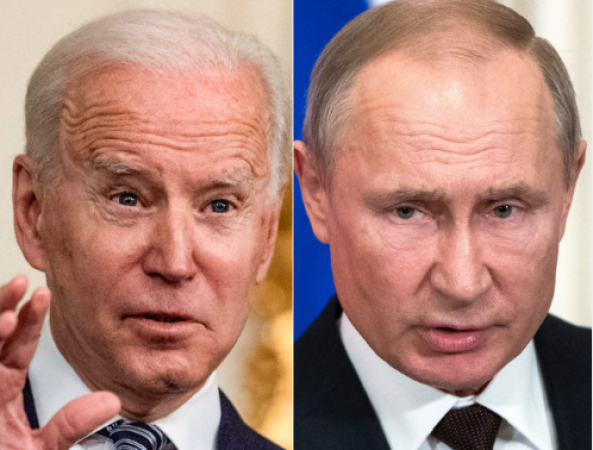
Washington: On the first anniversary of Russia's invasion of Ukraine, the US announced $2 billion in weapons for Kiev and new sanctions against Russia aimed at undermining Moscow's ability to wage war.
The sanctions were announced by US President Joe Biden's administration as the Group of 7 wealthy nations and Ukrainian President Volodymyr Zelenskiy met to discuss additional aid.
Visa restrictions were imposed on Russian military personnel, assets of President Vladimir Putin's allies were frozen, aluminium imports from Russia were effectively banned, Russian banking and arms-making activity was restricted, and the country's second largest mobile phone company, Megafon, was placed on a trade blacklist.
Also Read: Vegetable shortages of food starts in British supermarkets
According to Russia's RIA news agency, Anatoly Antonov, Russia's ambassador to the United States, the sanctions will have no effect.
Additional sanctions may be imposed at a later date, according to US officials.
The administration also sent a message to China and other countries that they should not try to help Russia evade sanctions.
"We will sanction additional actors associated with Russia's defence and technology industries, including those responsible for replenishing Russian stocks of sanctioned items or facilitating Russian sanctions evasion," the White House stated.
Also Read: IEA: The EU's energy conflict with Russia is still ongoing
The aid to Ukraine fell short of providing the F-16 fighter jets requested by Kiev, and some US officials are sceptical that such measures will be able to slow the increasing hostilities on the battlefield ahead of an expected spring offensive.
The new sanctions, according to Antonov, are "thoughtless" and intended to harm Russia. "Does anyone truly believe that this is the way to persuade our country to abandon its independent policies?" According to RIA, he told reporters.
Following the G7 meeting, the leaders issued a statement pledging "unwavering support for Ukraine for as long as it takes," including additional sanctions.
Following internal disagreements, European Union countries announced a tenth round of sanctions.
Russian Cabinet ministers, as well as dozens of governors and regional chiefs, were sanctioned by the US State Department.
The new sanctions imposed by the US Treasury Department target 22 Russian individuals and 83 entities, adding to the more than 2,500 sanctions imposed in the previous year.
Increased tariffs will also be imposed by the United States on more than 100 Russian metals, minerals, and chemical products worth approximately $2.8 billion to Russia.
The US also planned to announce $250 million in aid to help Ukraine shore up its energy infrastructure in the face of Russian attacks. Moldova, Ukraine's neighbour, will receive $300 million to help it transition away from its reliance on Russia for energy.
Prosecutors announced plans to charge a Russian national with illegally exporting counterintelligence equipment and seize a $75 million Park Avenue apartment and other property belonging to Putin associate Viktor Vekselberg, whom Washington sanctioned most recently in 2022.
Despite the fact that multiple rounds of Western sanctions have hurt Russia's economy, Putin can still fund his war. As a result, officials are focusing more on third parties who are assisting Russia in evading sanctions.
The Treasury imposed sanctions on more than 30 individuals and companies from Switzerland, Germany, and other countries for assisting Moscow in financing its war against Ukraine.
Meanwhile, the Commerce Department has imposed export restrictions on nearly 90 Russian and third-country companies, including those in China, for engaging in sanctions evasion in support of Russia's defence sector, and has barred them from purchasing items such as semiconductors.
Officials also stated that they are working to prevent components found in Iranian drones from making their way to the Ukrainian battlefield.
Also Read: In the upcoming months Washington intends to dispatch 100 to 200 troops to Taiwan
Without providing evidence, Washington has warned that China is considering providing weapons to Russia. China has stated that more weapons would exacerbate the conflict.
According to the Defense Department, the Biden administration has committed more than $32 billion in military aid to Ukraine over the last year, including 8,500 Javelin anti-armor systems, 38 High Mobility Artillery Rocket Systems (HIMARS), and a variety of drones.